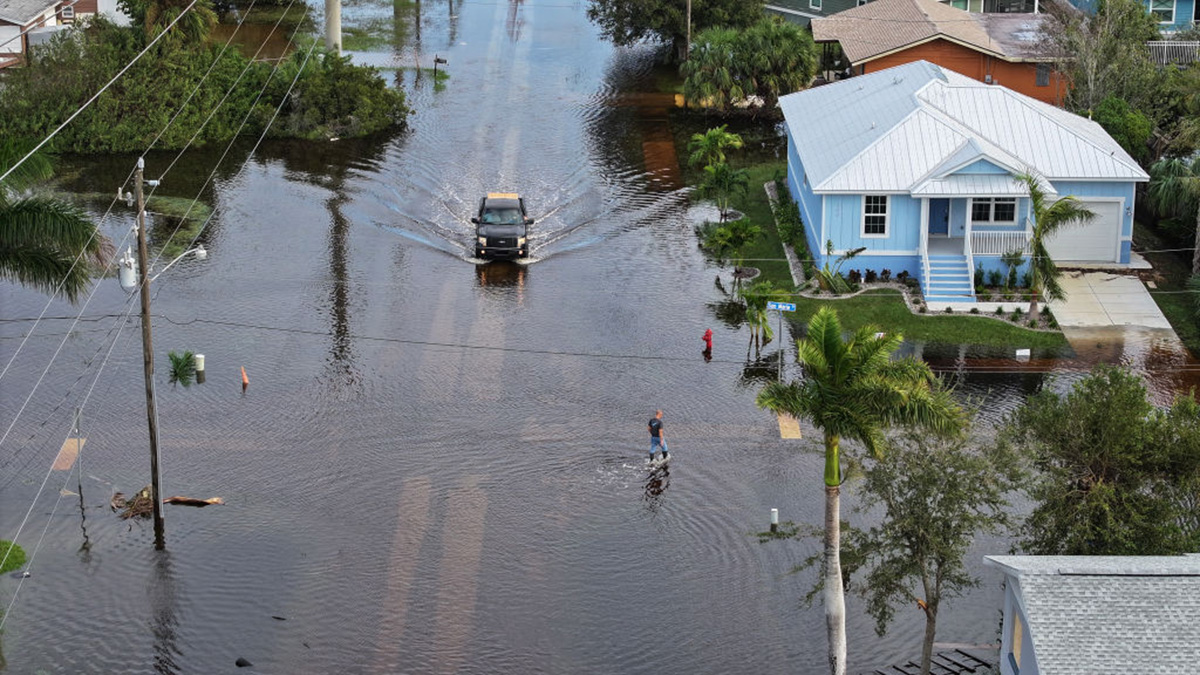Hurricanes Milton and Helene Force Changes to Florida’s Election Procedures
As Florida recovers from Hurricane Helene, state and local officials brace for further disruptions from the approaching Hurricane Milton, which could affect the upcoming general election. Governor Ron DeSantis has already made accommodations, granting counties hardest hit by Helene greater flexibility in distributing mail-in ballots and adjusting polling locations. More changes might be needed after Milton makes landfall, as storms continue to threaten voter access across the state.

Hurricane Helene’s Impact on Voting
Helene made landfall on September 26, the same day local officials began sending mail-in ballots to voters. The hurricane forced thousands to evacuate their homes, many of which are now uninhabitable. As a result, some voters may no longer be able to receive mail-in ballots at their registered addresses. With Hurricane Milton set to exacerbate the situation, voter advocacy groups have called for extended voter registration deadlines, citing concerns that people were too preoccupied with storm preparations to register on time. David Becker, Executive Director of The Center for Election Innovation and Research, warned that mail ballots could be lost or damaged due to the high winds and flooding. In such cases, voters are allowed to request replacement ballots or vote in person.
Accommodations for Election Flexibility
Hurricane Helene has damaged voting infrastructure, including polling locations in 13 counties, primarily where the Florida panhandle meets the peninsula. Pinellas County, near Tampa Bay, was particularly affected and may face more damage from Hurricane Milton. Travis Hart, president of the Florida Supervisors of Elections organization, noted that polling sites could be further impacted, necessitating even more flexibility in election procedures.
In response, Governor DeSantis issued an executive order allowing early voting and Election Day polling locations to be changed or consolidated in affected counties. Additionally, mail-in ballots can be sent to alternate addresses, and the order allows ballots to be forwarded to voters’ new locations. These accommodations aim to ensure voters displaced by the storms can still cast their ballots. To avoid potential poll worker shortages, the order waives training requirements for experienced workers and allows counties to recruit poll workers from other areas.
Reopening Voter Registration
The recent hurricanes have also fueled calls to reopen Florida’s voter registration period. A federal judge heard arguments Wednesday in a lawsuit brought by the Florida chapters of the NAACP and League of Women Voters. The lawsuit contends that thousands of residents may have missed the October 9 registration deadline due to hurricane-related disruptions, particularly those preparing for evacuations. While some voter advocacy groups push for the extension, the Florida Supervisors of Elections Association did not request one. Hart argued that people had sufficient time to register before the storms, and extending the deadline could lead to misinformation or false claims of voter fraud.

Florida’s History of Hurricane-Era Elections
Florida has a history of making election accommodations due to hurricanes. In 2004, after Hurricane Charley, then-Governor Jeb Bush allowed 10 counties to delay early voting and relocate polling places. Similarly, in 2016, Hurricane Matthew led to a court-ordered one-day extension of the voter registration deadline. Most recently, in 2018, Governor Rick Scott allowed Gulf and Bay counties to forward mail-in ballots to displaced voters and combine polling locations following Hurricane Michael.


Comments are closed, but trackbacks and pingbacks are open.